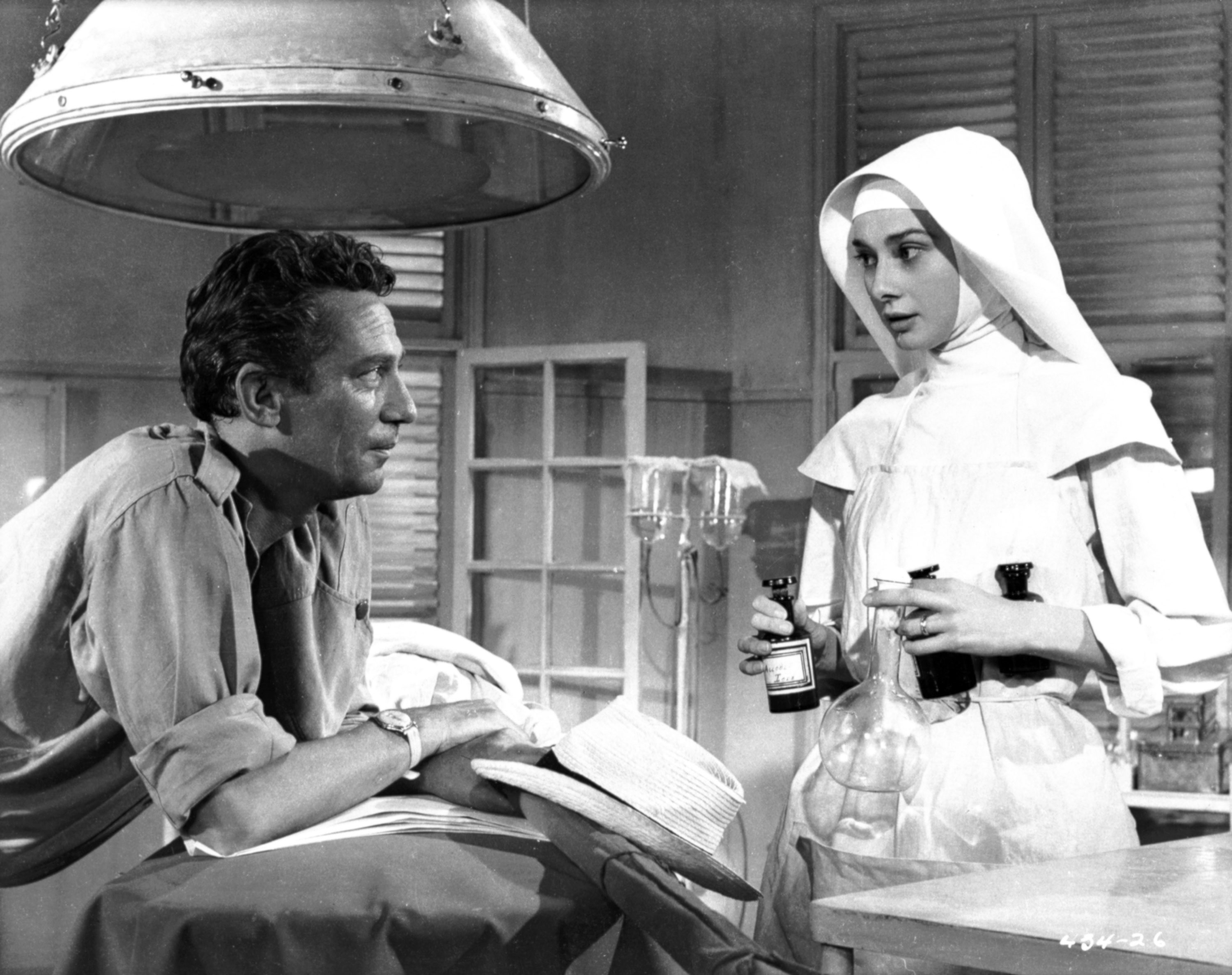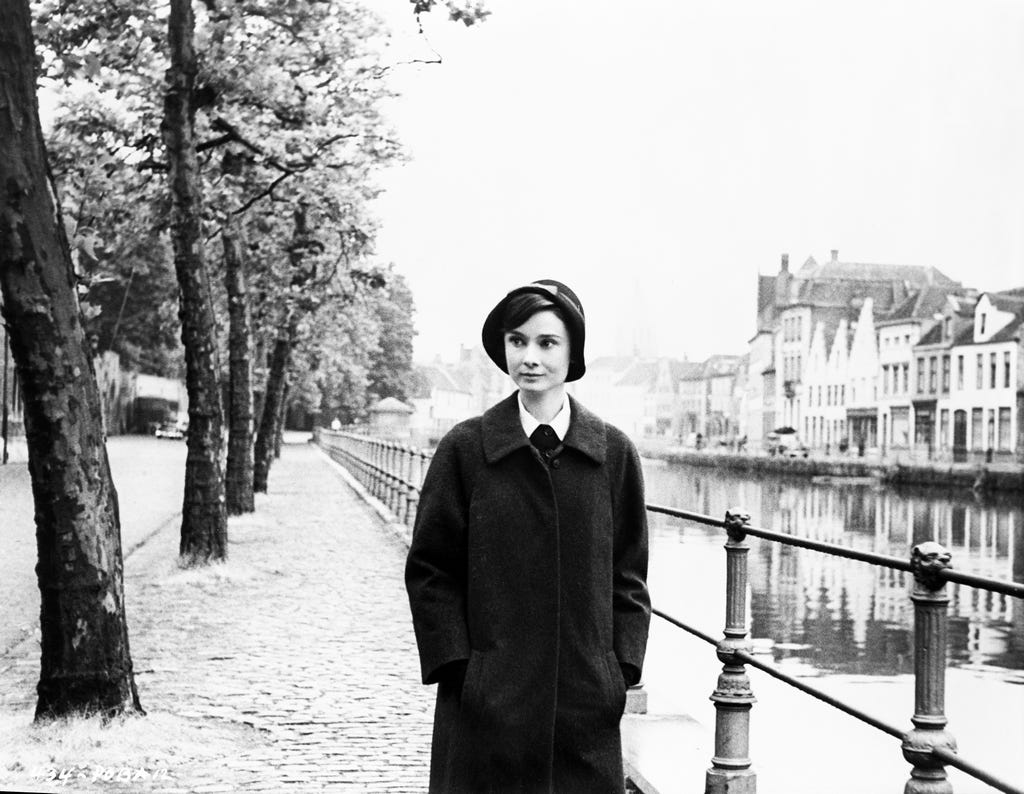Can we mere mortals ever fully give ourselves over to God? Does God want our collective obedience or individual fulfillment? Can we maintain faith in an all seeing, all powerful, God in a world rife with suffering and tragedy? These are just some of the difficult questions explored in the 1959 drama The Nun's Story. Offering neither answers nor judgment, this film presents arguably the most complex and nuanced depiction of religion ever put to celluloid. At once ahead of its time and timeless, The Nun's Story is essential Easter viewing.
The story begins in late 1920's Belgium with willful teen and aspiring nun Gabrielle entering an order of sisters at a local convent. While she is a Catholic, her choice is more inspired by her desire to offer medical care to the local population in Belgian occupied Congo than her devotion to God. This lack of religious devotion, combined with the intellect and independence encouraged by her surgeon father, make her adjustment to convent life especially difficult. Despite her best efforts towards obedience and humility, she is continually forced to contend with arbitrary rules and unreasonable demands. As a result, she is faced with the dilemma of choosing between her own individuality and the collective of the sisters and what they insist is the will of God.
The film's exploration of vital religious and existential questions make it a must see for the faithful and non-believers alike. The film depicts Gabrielle's struggles with an empathy and humanity that will leave viewers rooting for her on every step of her journey. Even as it sympathizes with its heroine's plight the film refuses to offer easy answers by condemning the sisters whom she continually finds herself at odds with. Instead, the film allows viewers to understand the motives and reasoning of both sides. In this way, the film allows viewers to grapple with the same questions as Gabrielle and come to their own conclusions. As a result, the film explores religion with an emotional complexity and intellectual curiosity rarely seen in modern religious discourse, let alone that of the culturally conservative 1950s. In a world of economic, political, and cultural tumult Gabrielle's struggles and the questions that propel them are more timely than ever. This Easter, join Gabrielle through the reality of religious life in The Nun's Story.
The film brings Kathryn Hulme's best selling novel to compelling life thanks to the work of its cast. Dean Jagger portrays Gabrielle's surgeon father with warmth and understanding. Edith Evans perfectly captures the single-mindedness and rigidity of the convent's Mother Superior. Peter Finch portrays Gabrielle's colleague in Congo, Dr. Fortunati, with an apt blend of cynicism, intelligence, and charm. Even in the midst of excellent supporting performances the film belongs to Audrey Hepburn as the title nun. In a stark departure from the romantic comedies that made her a star, Hepburn turns in the performance of a lifetime in a portrayal that captures Gabrielle's journey with complexity, maturity, and empathy along with her signature charm.
At once a deeply personal depiction of one woman's experiences in religious life and a universal meditation upon faith The Nun's Story remains one of the most compelling religious tales ever put to the screen. Through its emotionally raw and intellectually honest depiction of its heroine's journey the film relates a gripping story while raising thought provoking questions. As a result, the film manages to do the impossible; tell an essentially Catholic story that even non-believers will be moved by. The cast transports viewers to twentieth century Europe and Africa through a series of rich and complex performances. Put aside the chocolate bunnies and chew on the questions presented by The Nun's Story.






